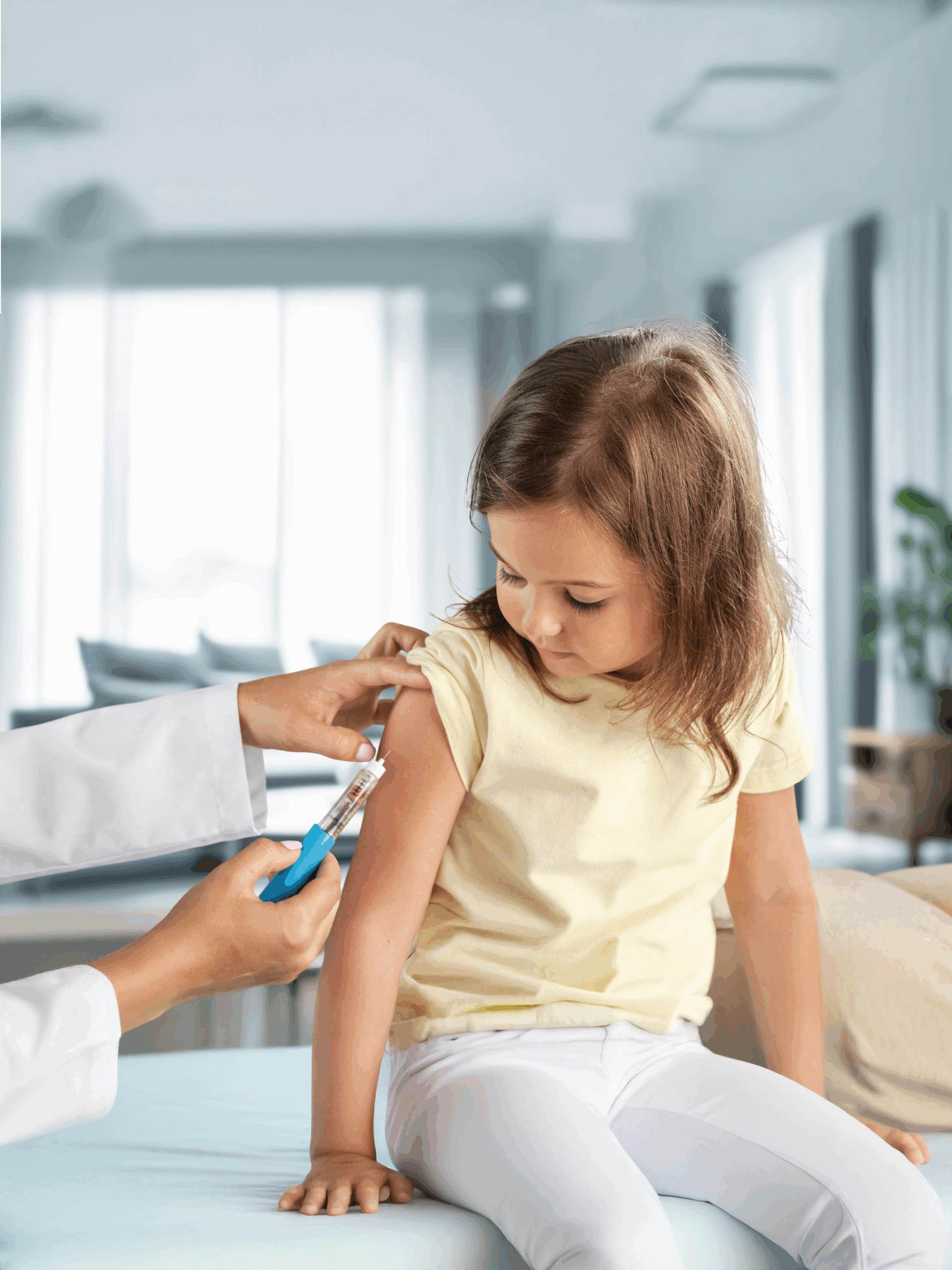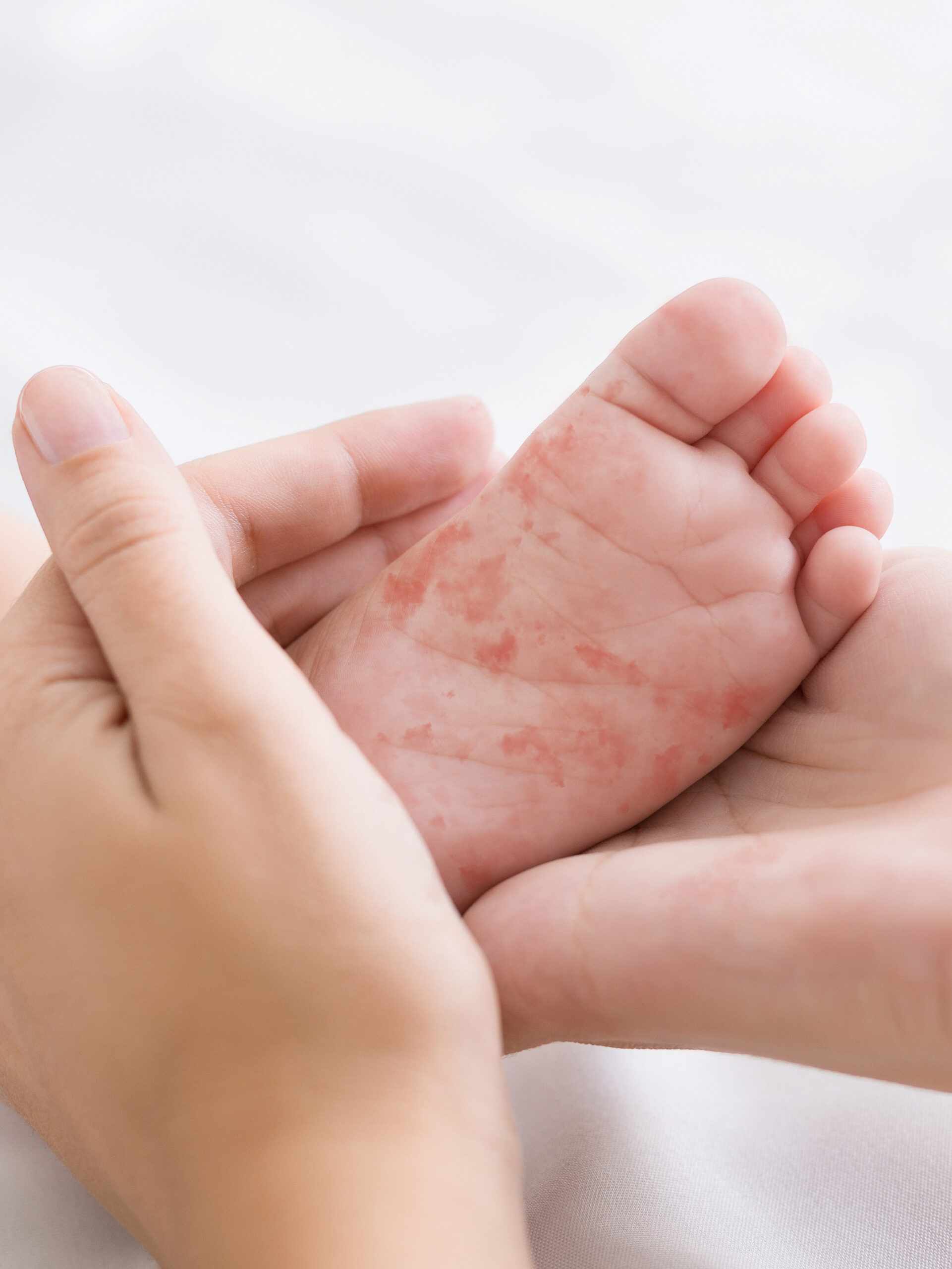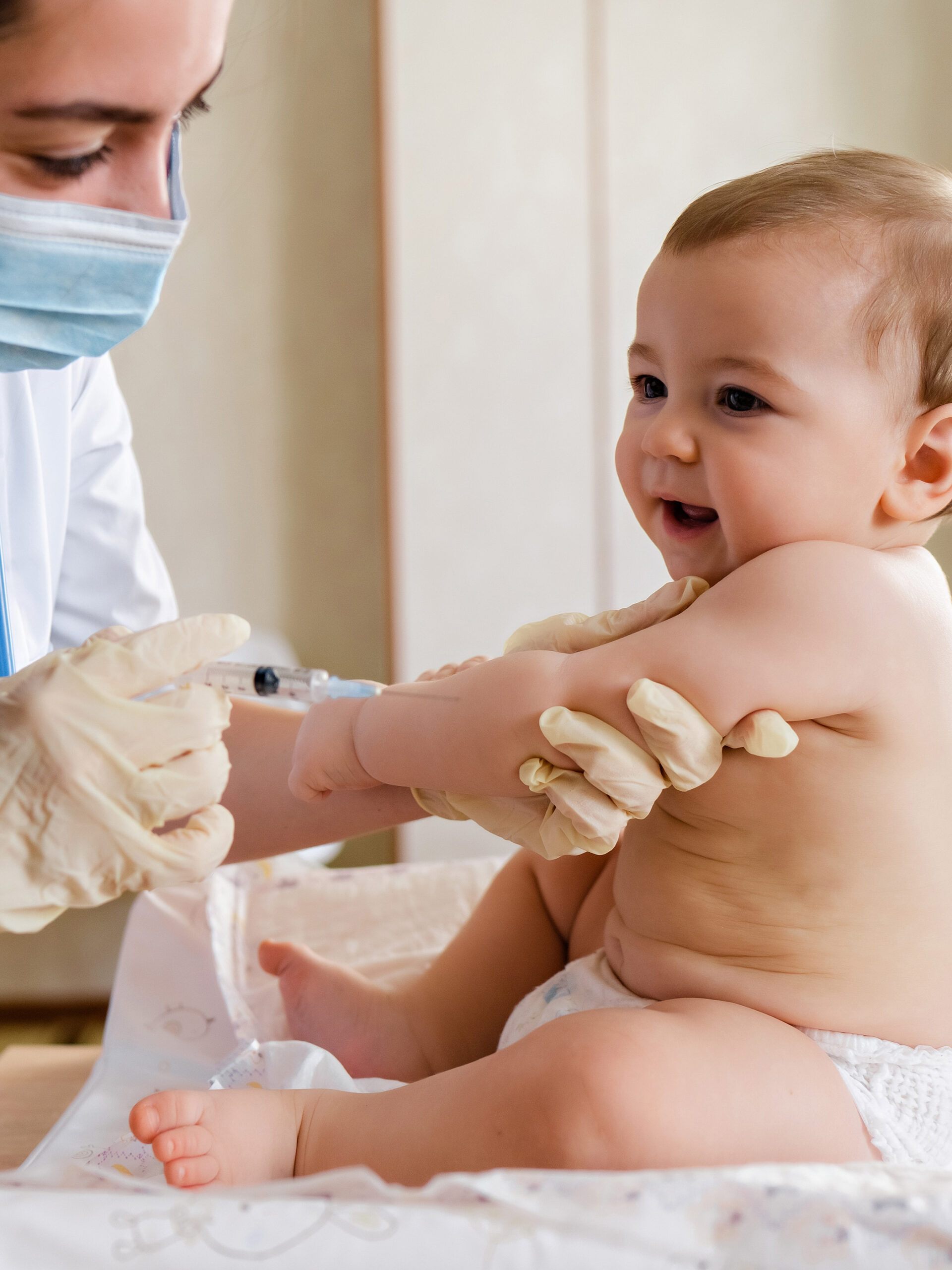Immunizations
Staying current on vaccinations is important for all people, especially babies and children. When babies, children and teens follow the recommended immunization schedule outlined by the American Academy of Pediatrics (AAP), they are better protected against potentially life-threatening diseases.
Vaccine FAQs
Are vaccines safe?
Yes. Vaccines are one of the most effective and carefully studied tools we have to protect children’s health. Before approval, vaccines go through years of rigorous testing for safety and effectiveness. After they are licensed, they continue to be closely monitored to ensure ongoing safety.
Vaccines, along with everyday practices like handwashing, have dramatically reduced — and in some cases eliminated — many serious and potentially life-threatening childhood diseases.
Is it better to give multiple vaccines at one visit or space them out?
The safest and most effective way to protect your child is to follow the recommended vaccine schedule and give vaccines on time. There is no medical benefit to spacing out vaccines.
Delaying or spreading out vaccines increases the amount of time your child is left unprotected and raises the risk of catching a preventable disease. Children are exposed to far more antigens (proteins that stimulate the immune system) through normal daily activities than they are from vaccines.
A child’s immune system is well equipped to handle multiple vaccines at the same visit and build strong protection against several diseases at once.
Can vaccines be delayed if my child is healthy?
Even healthy children need vaccines on schedule. Vaccine-preventable diseases such as measles, whooping cough, and polio still exist and can spread quickly, especially when vaccination rates drop.
Staying on schedule helps protect not only your child, but also newborns, medically vulnerable children, and the broader community. If a child does miss vaccines, pediatricians can help create a catch-up schedule to safely get them back on track as soon as possible.
Are some vaccines more important than others?
No. All recommended childhood vaccines are equally important because each one protects against a serious, and sometimes life‑threatening, disease. The safest, most effective way to protect your child is to follow the immunization schedule recommended by the American Academy of Pediatrics (AAP) and to give vaccines on time.
Delaying or spacing out vaccines does not provide any medical benefit. In fact, spreading shots out leaves children unprotected for longer periods and increases the number of visits and stress for families. Not completing a vaccine series can reduce a child’s protection and may leave them vulnerable to preventable infections.
Schedule a vaccination appointment for your child
Find a CHOC primary care provider in Southern California
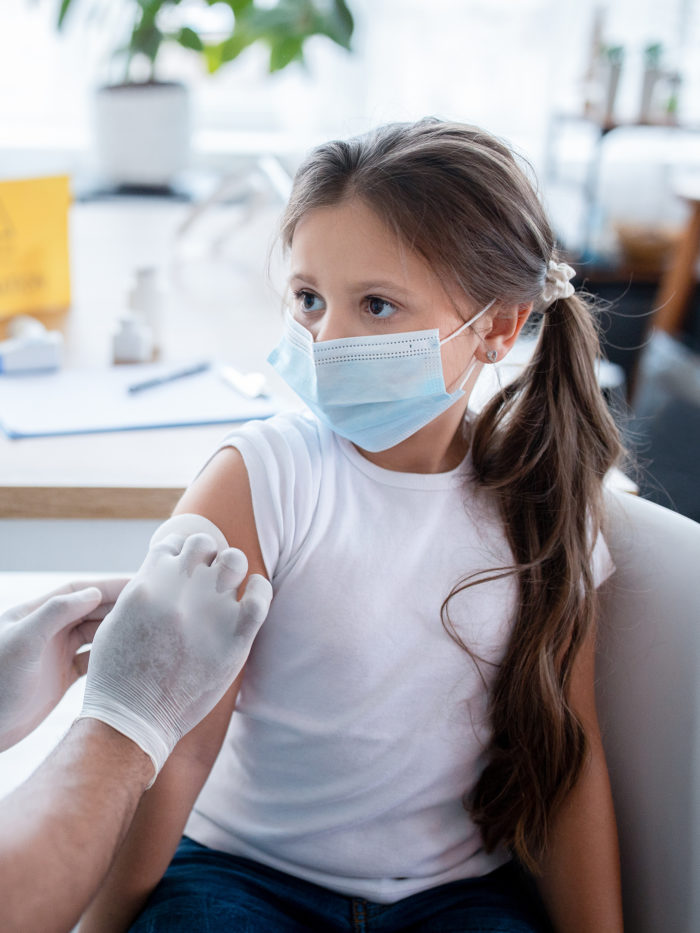
Immunization schedule and tips
The current immunization schedule below, developed by the AAP, has been researched and proven to be the most effective and safest way for children to be vaccinated against potentially fatal diseases. It’s important to know that no alternative schedule has been shown to be as safe and effective.
Studies have shown that preparing your child for vaccinations should ideally include three components: explaining what will happen, how it will feel, and strategies for coping with any related stress or discomfort.
More vaccine tips

Human papilloma virus (HPV) vaccine
The HPV vaccine is a preventative vaccine. The human papillomavirus affects nearly all sexually active men and women at some point in their lives according to the CDC. A percentage of people with the virus do not clear their infections and may develop genital warts, cervical cancer, head and neck cancers, and penile cancers.
Studies have shown that in patients who never had HPV, the effectiveness of preventing pre-cancerous changes to the cervix was 97 to 100 percent. This is why the vaccine is recommended in all girls before they begin to be sexually active. The vaccine is also known to be more effective when given at a younger age. It is recommended in girls 9 to 26 years of age.
The vaccine is recommended in all boys ages 9 to 21 years due to the fact that many head and neck, penile and anal cancers are directly linked to HPV serotypes 16 and 18. Vaccinating males can also help prevent cervical cancer in their female partners by reducing the rate of transmission.
Learn more about HPV Vaccines
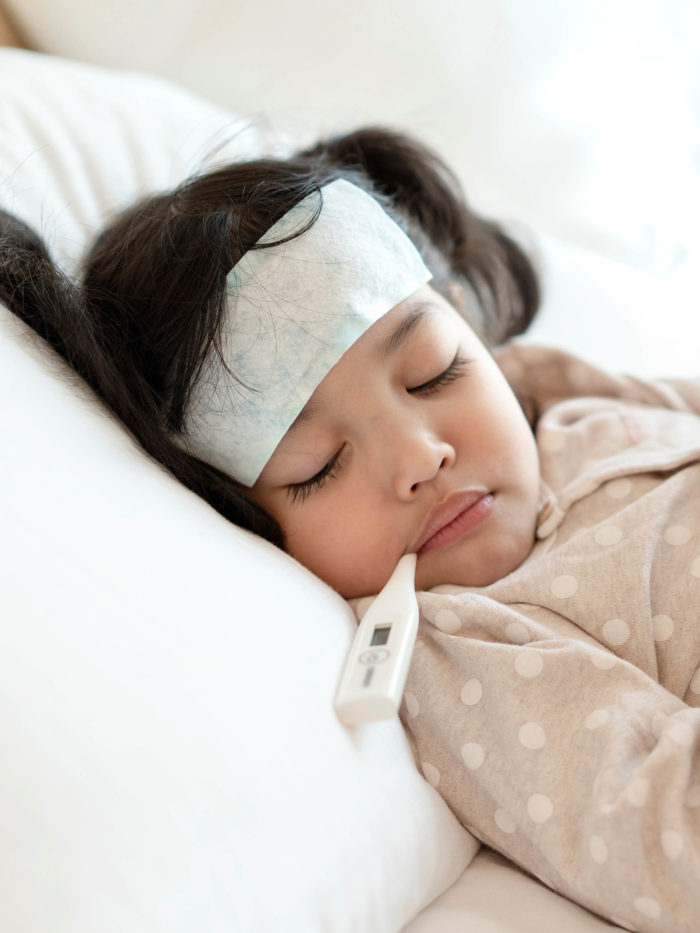
Flu shot (influenza vaccine)
Why the flu vaccine matters
Influenza is more than just a bad cold. It can lead to serious illness in children. Each year, thousands are hospitalized, and some die, especially during severe flu seasons. Most were not vaccinated.
The flu vaccine is the best way to protect kids and teens from serious illness and helps protect those around them, including babies and people with weakened immune systems.
Who should get the flu vaccine?
- All children 6 months and older should get a flu vaccine every year.
- For children ages 6 months through 8 years, two doses (spaced at least 4 weeks apart) may be needed the first time they are vaccinated.
Talk to your child’s healthcare provider to confirm whether one or two doses are needed.
When should children get vaccinated?
The best time to get the flu vaccine is in early fall (September or October), before flu starts spreading in the community. However, vaccination can still be beneficial even later in the season, as flu viruses often circulate into early spring.
Some children may benefit from getting vaccinated earlier (as early as July or August), especially if:
- They need two doses
- There’s a concern they might not be vaccinated later
Is the flu vaccine safe?
Yes. The flu vaccine has been safely given to millions of children for decades. Most side effects are mild and short-lived, such as:
- Soreness or swelling at the injection site
- Low-grade fever
- Muscle aches
- Runny nose (with the nasal spray version)
Serious side effects are extremely rare.
Can you get the flu from the flu vaccine?
No. The flu shot uses an inactivated (killed) virus that cannot cause flu. The nasal spray contains weakened live virus that can reproduce in the nose, but not the lungs, and may cause mild symptoms like a runny nose, not the flu.
Relative risks and benefits
Risks of flu illness:
- High fever and chills
- Severe body aches and fatigue
- Headaches
- Pneumonia
- Hospitalization
- Increased risk for secondary infections caused by other pathogens
- Death
Risks of the vaccine:
- Mild redness or swelling at the injection site
- Fever or muscle aches
Overall, the benefits of flu vaccination far outweigh the risks, especially in children, who are more vulnerable to complications.
Flu and other health conditions
Children with chronic health conditions such as asthma, diabetes, or heart disease are at higher risk for serious flu complications. For these children, getting the flu vaccine is especially important.

Featured article
Learn more about Flu
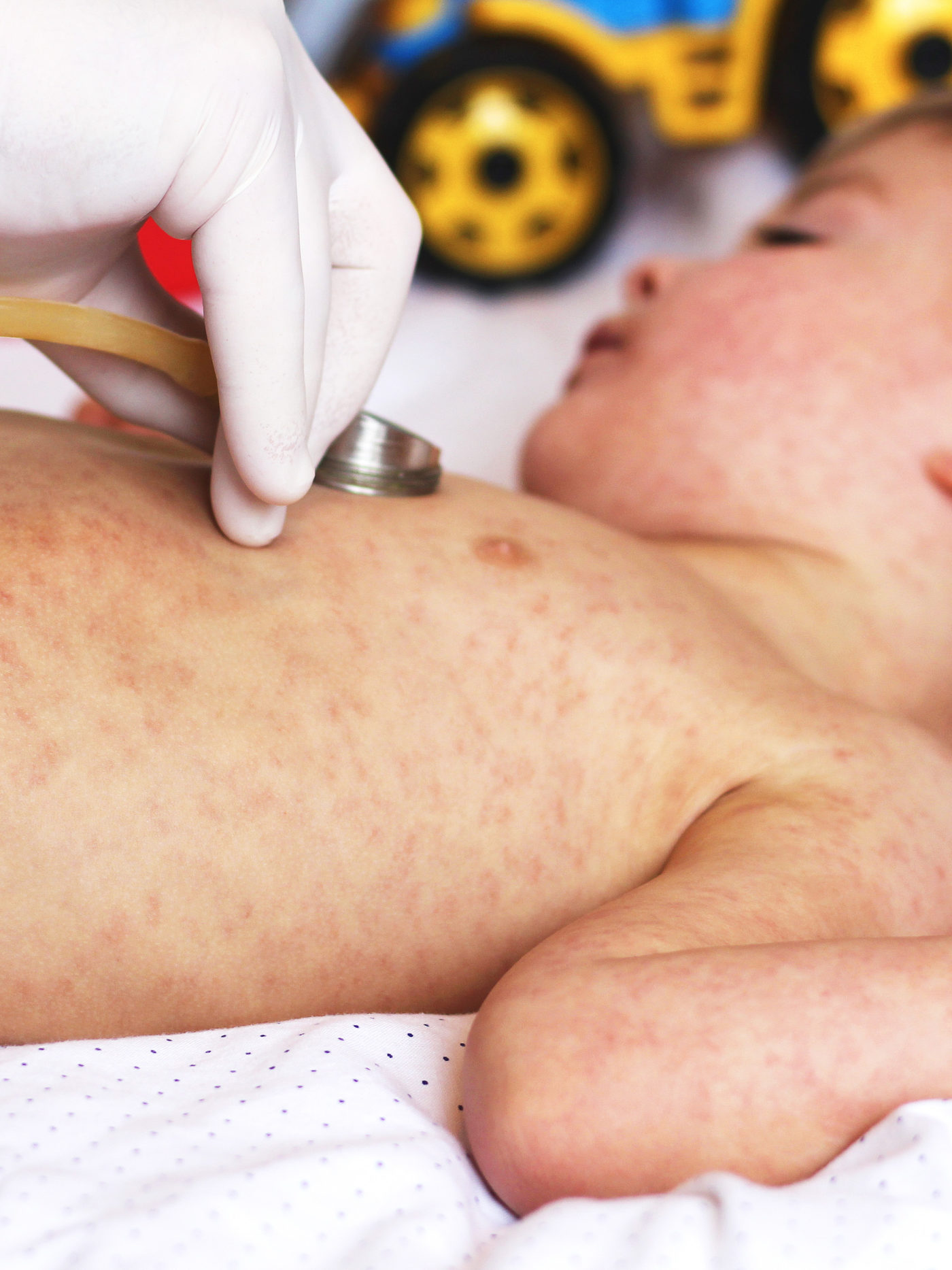
Measles vaccine
Measles is one of the most contagious infections. It is so contagious that someone with measles could infect up to 90% of close contacts who are not immunized.
Measles is a highly contagious virus that lives in the nose and throat mucus of an infected person. It’s easily spread through coughing and sneezing. The virus can live up to two hours on a surface or in an airspace where an infected person coughed or sneezed. In other words, even after an infected person leaves a room, an unvaccinated individual could get measles as a result of breathing the contaminated air or touching the infected surface.
Measles does carry complications, from mild to severe. The most common complications are diarrhea and ear infections, which can result in permanent hearing loss. Severe complications include pneumonia, the most common cause of death from measles in young children, and encephalitis (swelling of the brain) that can lead to convulsions and leave a child with hearing loss and cognitive delays.
There is no treatment for measles. Vaccination is the best protection against the disease.
LEARN More about measles
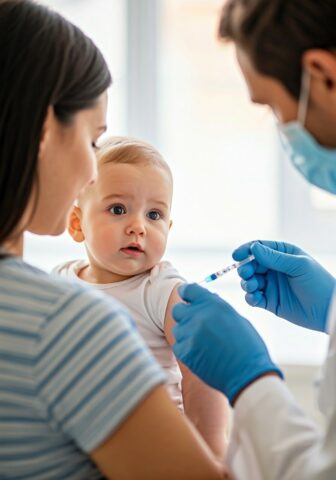
Hepatitis B vaccine
Hepatitis B is a serious viral infection that affects the liver. When infants and young children become infected, they often show no symptoms at first, but up to 90% can develop chronic (lifelong) infection.
Vaccination in early infancy is the most effective way to prevent infection and its long-term complications.
According to the American Academy of Pediatrics (AAP):
- All infants should receive the hepatitis B vaccine, starting at birth.
- The vaccine is given as a series of doses during infancy and early childhood to provide long-lasting protection.
Babies born to mothers with hepatitis B are at especially high risk and require immediate protection at birth.
When should children get vaccinated?
AAP recommends:
- The first dose within 24 hours of birth
- Additional doses during infancy, typically completed by 6–18 months of age
Giving the first dose at birth helps protect infants from early, unrecognized exposures and ensures vaccination is not missed.
Can you get hepatitis B from the hepatitis B vaccine?
No. The hepatitis B vaccine does not contain live virus and cannot cause hepatitis B infection.
More vaccine tips
Schedule a vaccination appointment for your child
Find a CHOC primary care provider in Southern California
The guidance on this page has been clinically reviewed by CHOC pediatric experts.
For more health and wellness resources from the pediatric experts at CHOC:
Sign up for the Kids Health newsletter.
The contents of this webpage, including text, graphics, audio files, and videos (“Materials”), are for your general information only. The Materials are not intended to substitute qualified professional or medical advice, diagnoses, or treatments. CHOC does not recommend or endorse any specific tests, physicians, products, procedures, or other information that may be mentioned on or linked to this webpage. Always call your physician or another qualified health provider if you have any questions or problems. If you think you may have a medical emergency, call your doctor, go to the nearest emergency department, or call 911.
For more health information for your family visit health.choc.org




